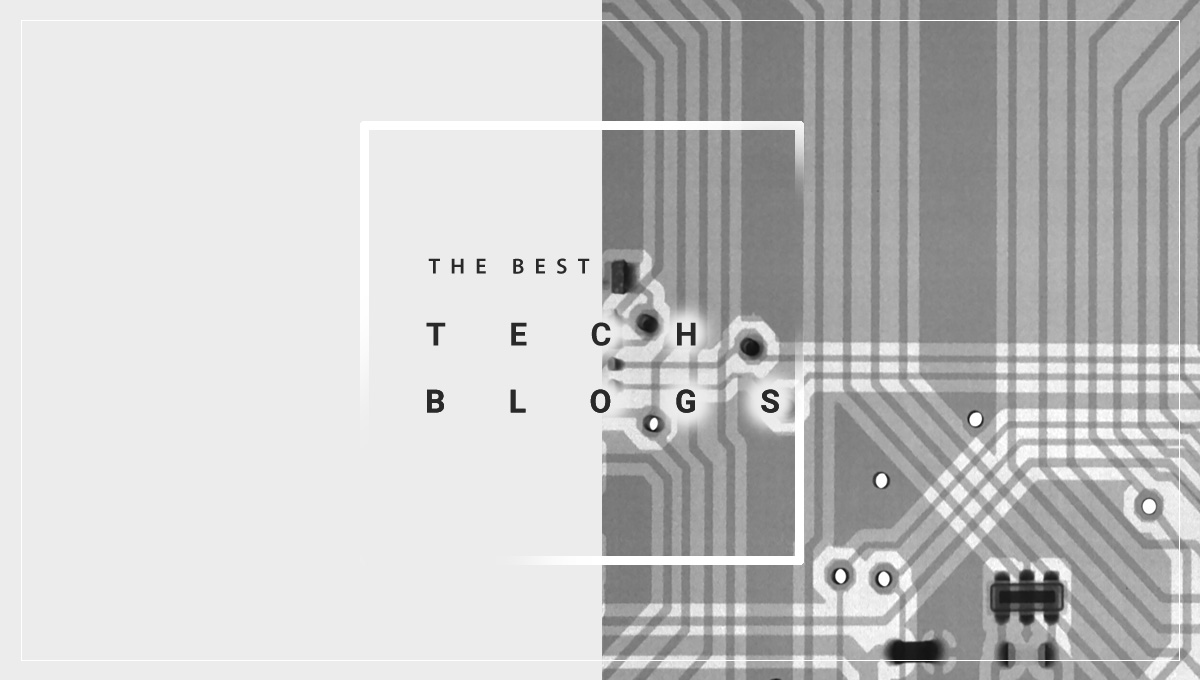Discover the Best tech blog for the most recent Trends and Developments in Modern technology
Discover the Best tech blog for the most recent Trends and Developments in Modern technology
Blog Article
Exactly How Blockchain Technology Is Revolutionizing Information Security
Blockchain modern technology is fundamentally altering the landscape of data safety and security by introducing a decentralized framework that guarantees boosted transparency and resilience. Unlike conventional systems, which rely on centralized data repositories, blockchain disperses data across a network, decreasing susceptabilities and solitary factors of failing. Using advanced cryptographic techniques ensures that data continues to be tamper-proof, cultivating trust fund amongst stakeholders and customers. As markets rapidly adapt to this technology, inquiries arise about its more comprehensive effect and possible difficulties. What effects does this shift hold for future information protection methods and regulative frameworks? The answers might stun you (Best tech blog).
The Fundamentals of Blockchain
Blockchain innovation, a revolutionary concept in electronic information monitoring, fundamentally changes how details is saved and protected. At its core, a blockchain is a distributed ledger that records purchases across a network of computers, making certain transparency and immutability. The innovation operates on a chain of blocks, each having a list of transactions. Once a block is filled up, it is time-stamped and linked to the previous block, developing a sequential chain.
Key to understanding blockchain is the hashing process, which secures deal information into a distinct alphanumeric code. This cryptographic function makes certain that any modification in the deal data leads to an entirely different hash, therefore protecting versus meddling. The consensus system, an additional important element, confirms and validates brand-new purchases with a network of nodes, thus removing the need for a central authority.
Furthermore, blockchain's append-only structure makes certain that data, when added, can not be removed or changed. This particular assurances a irreversible and proven record of transactions, cultivating depend on among participants. Therefore, blockchain gives a durable framework for information integrity, using sectors a reliable method for tracking and managing electronic info in a safe, clear manner.
Decentralization and Safety And Security
Decentralization, a core concept of blockchain technology, dramatically improves data safety by dispersing control across a network rather than relying on a singular, central entity. By spreading data across countless nodes, blockchain guarantees that also if one node is compromised, the whole network stays safe and secure.

Each participant in the network has access to the whole blockchain, enabling them to validate and investigate transactions independently. In general, decentralization is instrumental in improving data security in blockchain networks.

Cryptographic Strategies
At the heart of blockchain technology, cryptographic techniques play an essential duty in protecting information, ensuring both privacy and stability. Cryptography in blockchain utilizes a combination of asymmetric and symmetrical algorithms to encrypt information, making it easily accessible just to licensed events.
Hash functions are one more essential component, transforming input data into a fixed-size string of characters, efficiently producing an one-of-a-kind digital finger print for each block. This makes sure that any type of attempt to change the information will cause a completely different hash, hence keeping the immutability of the blockchain. Additionally, digital trademarks validate the credibility and integrity of transactions, giving a layer of non-repudiation.
The decentralized nature of blockchain, incorporated with robust cryptographic techniques, eliminates the need for intermediaries, reducing prospective susceptabilities. As blockchain innovation evolves, innovations in cryptography such as zero-knowledge evidence and homomorphic encryption continue to enhance safety steps, even more strengthening information protection in this this post revolutionary digital ledger system.
Use Situations Across Industries

In the medical care market, blockchain ensures the secure storage space and sharing of client records, advertising interoperability while safeguarding delicate data from unapproved accessibility. This technology equips clients with control over their clinical history and assists in seamless sychronisation amongst medical care carriers.
Supply chain administration advantages substantially from blockchain's unalterable ledger, which guarantees traceability and credibility of products from origin to consumer. By boosting openness, blockchain aids reduce problems such as counterfeiting and unethical sourcing.
Furthermore, blockchain's decentralized nature is reshaping the energy industry by making it possible for peer-to-peer energy trading, where consumers can deal excess sustainable power straight. This fosters a much more effective and lasting power ecological community.
In the world of copyright, blockchain provides a tamper-proof platform for makers to sign up and protect their works, ensuring rightful acknowledgment and fair settlement. These varied usage situations highlight blockchain's role as a crucial force in redefining data security across markets.
Future of Data Security
As we seek to the future of information protection, blockchain technology is poised to play an essential function in safeguarding digital information. With its decentralized and immutable characteristics, blockchain provides a durable framework for protecting delicate information against unapproved access and cyber threats. This innovation makes certain that as soon as data is tape-recorded, it is nearly difficult to alter without detection, hence offering a substantial benefit over typical data storage approaches.
The assimilation of blockchain with various other innovative innovations, such as expert system and the Web of Points (IoT), is expected to boost data defense methods further. By leveraging wise contracts, organizations can impose and automate protection protocols, lowering human mistake and increasing performance. Furthermore, blockchain's capacity to give clear and traceable transactions will certainly reinforce trust and responsibility in information administration practices.
As governing landscapes develop, blockchain's compliance-friendly nature will come to be increasingly relevant. It can assist organizations meet rigid data protection guidelines, such as the General Data Protection Policy (GDPR) look at this now and the California Consumer Personal Privacy Act (CCPA), by providing verifiable records of data processing activities. Eventually, blockchain's unique qualities position it as a transformative tool in the continuous mission to protect the digital world against ever-evolving cyber dangers.
Final Thought
Blockchain modern technology stands for a paradigm change in data protection by leveraging decentralization and cryptographic techniques to enhance transparency, count on, and Related Site data integrity. Its capability to get rid of single points of failing and employ agreement devices significantly minimizes the danger of fraudulence and cyberattacks. This innovative framework not only encourages customers with greater control over their information yet also aligns with regulative compliance. As cyber dangers advance, blockchain becomes a vital device for robust data security throughout various markets.
Blockchain innovation is fundamentally modifying the landscape of information security by introducing a decentralized structure that guarantees boosted transparency and strength. Unlike traditional systems, which rely on centralized data databases, blockchain disperses information across a network, reducing vulnerabilities and solitary points of failure.Decentralization, a core concept of blockchain modern technology, significantly boosts data safety and security by distributing control across a network rather than relying on a singular, central entity.At the heart of blockchain modern technology, cryptographic methods play a crucial function in safeguarding information, guaranteeing both discretion and honesty.Blockchain technology represents a paradigm shift in data protection by leveraging decentralization and cryptographic strategies to boost openness, trust, and information stability.
Report this page